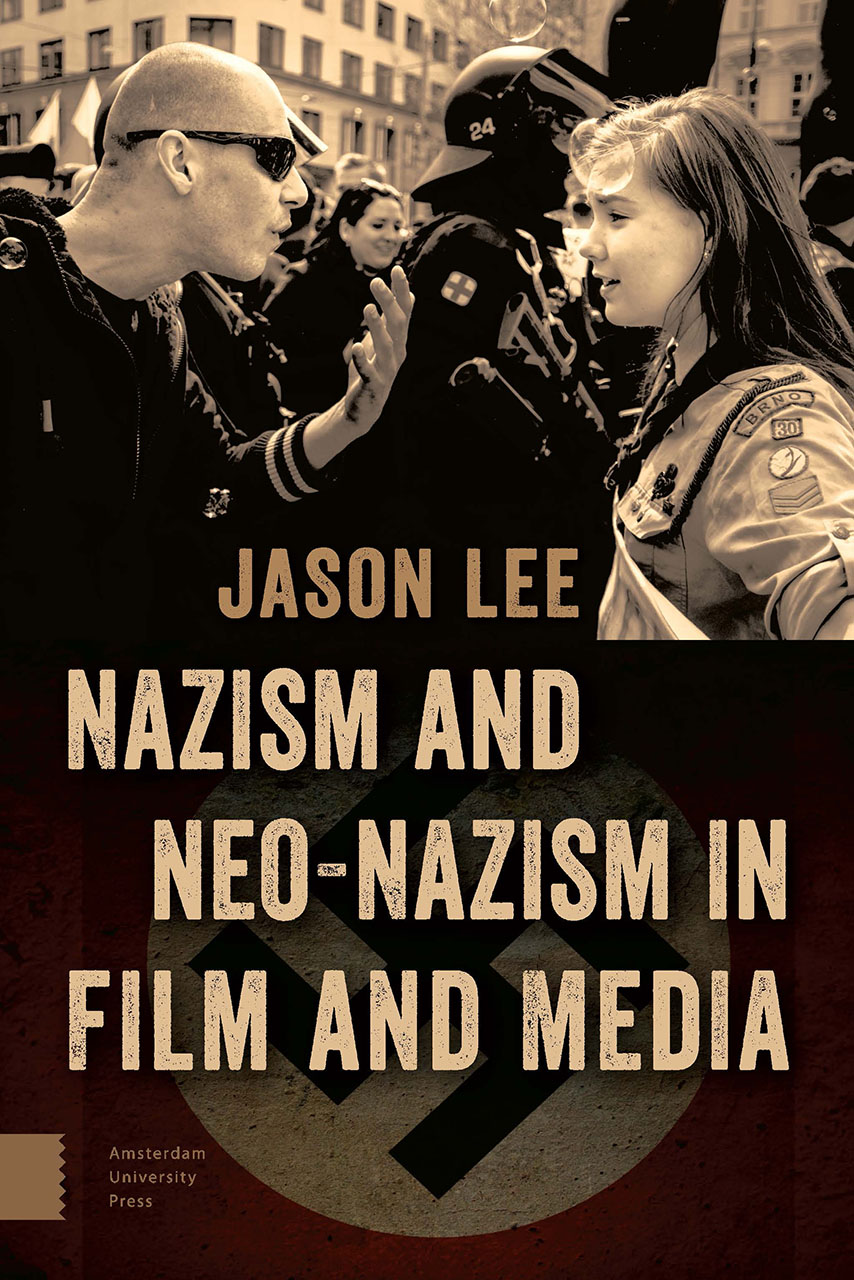A De Montfort University Leicester (DMU) academic has written a new book that explores the representation of Nazism in the media.
Professor Jason Lee has written Nazism and Neo-Nazism in Film and Media published by Amsterdam University Press and is now available to buy.

This book examines Nazism and neo-Nazism in film, media, and popular culture, with examples drawn from mainland Europe, the UK, North and Latin America, Asia, and beyond.
As well as investigating current trends in Nazism and Neo-Nazism in contemporary media globally, the book also engages with debates that go to the very heart of our understanding of knowledge: history, memory, meaning, and truth.
Although he started writing the book several years ago, Professor Lee believes that the current global political climate makes this the perfect time to address this topic.
He explained: “This is part of the zeitgeist at the moment. I started writing this book six years ago but because of Donald Trump, amongst other factors, there’s now a global interest in the rise of the Right, and even more so now with the popularity of Marine Le Pen in France, Geert Wilders in Holland, and Silvio Berlusconi’s disturbing resurrection in Italy.
“I explain how Nazism and Neo-Nazism have always been at the centre of culture, but with the emergence of people like Donald Trump people are now coming out with their real allegiances because they feel they are allowed to.”
Nazism and Neo-Nazism in Film and Media also looks at popular films, such as The Reader, as well as mainstream media and social media, including the work of Steve Bannon. There is a section that focuses on right-wing groups, such as football hooligans who have links to Nazism.
RELATED NEWS
DMU writer explores seedy life of millionaire footballer in new novel
DMU media expert writes ‘most valuable’ book on child abuse yet published
DMU academic offers new perspective of 9/11 cultural legacies
It takes a global approach and explores Nazism and Neo-Nazism in countries around the world, from the USA to Mongolia.
Professor Lee said: “What’s very interesting from my perspective is that there are groups of Neo-Nazis in Asia, for example, who feel like they are justified because they are defending local rights. This has parallels to what’s happening in Western Europe. These groups are stepping in, because they feel that their local rights aren’t being defended in their fight against perceived imperialism.
“What I found remarkable was how prolific this is all around the world. There is noteworthy support for Neo-Nazis in Latin America, Asia and Australia. Nazism is always associated with Germany but groups related to National Socialism are a global phenomenon.”
He added: “Marine Le Pen has just changed the name of her party to make it more electable, so that could happen in France, and there could be a further shift to the Right. Donald Trump seems to be able to do whatever he wants, and Vladimir Putin in Russia and a number of leaders in Asia are effectively dictators, with any voice of dissent being removed.”
With the popularity of extremist politics continuing to rise across the world, Professor Lee believes the book should act as a warning against the rise of right-wing populism.
Nazism and Neo-Nazism in Film and Media is published by Amsterdam University Press and is available for order
here.
Posted on Monday 26 March 2018